I'M ONE TO TALK
Our Blog Posts will help you reach your full potential in becoming a confident conversationalist. New topics each week.
Sports Conversation Starters for Your Workweek

If you’re measuring the effectiveness of your communication in time instead of understanding you’re not actually communicating. You’re talking to hear yourself talk.
In other words, if you think a longer conversation means you’re a better communicator you need to rethink your KPI or success metrics.
Short conversations can be more impactful and make you a more effective communicator if you’re intentional about the message you’re conveying and the time you spend listening.
That’s true for every email, meeting, video conference and small talk opportunity.
You don’t have to spend a lot of time in small talk to make a genuine connection when you’re intentional about how you engage with people.
Here are a few sports topics to help you do that this week.
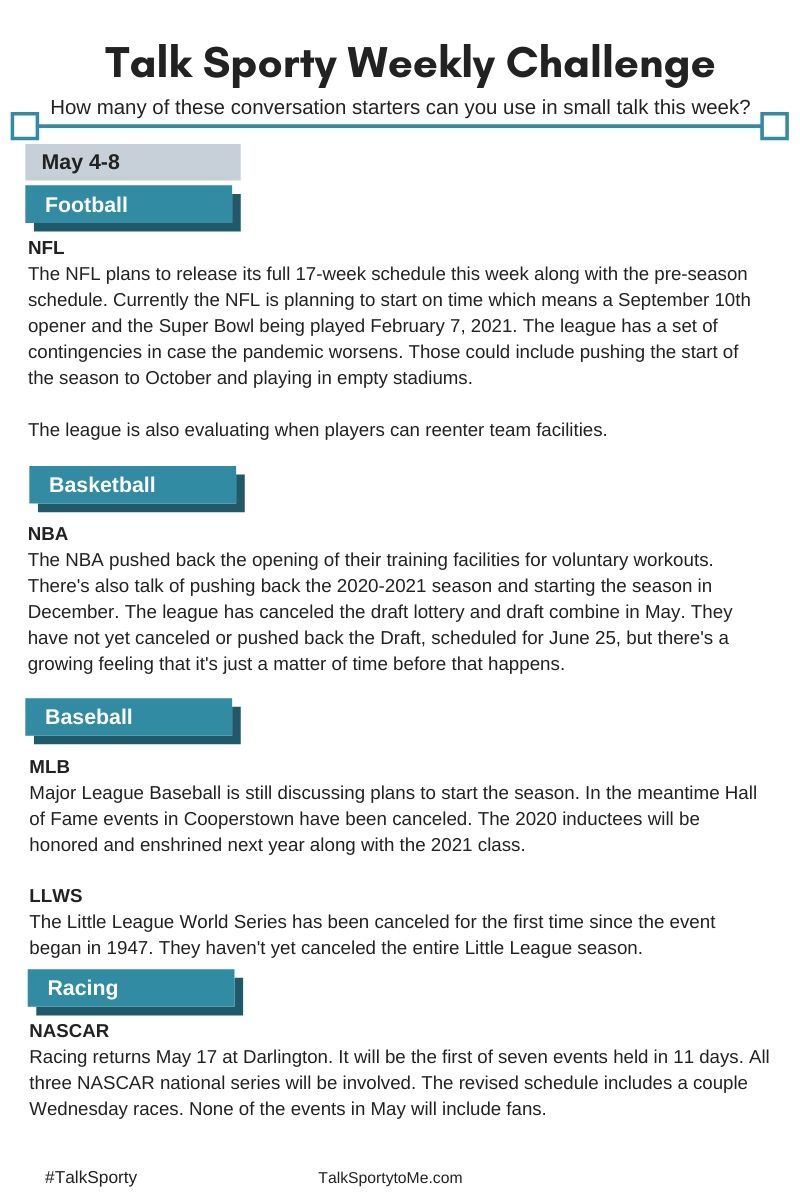
Learn from a Leader: Steve Singh on creating All In Seattle
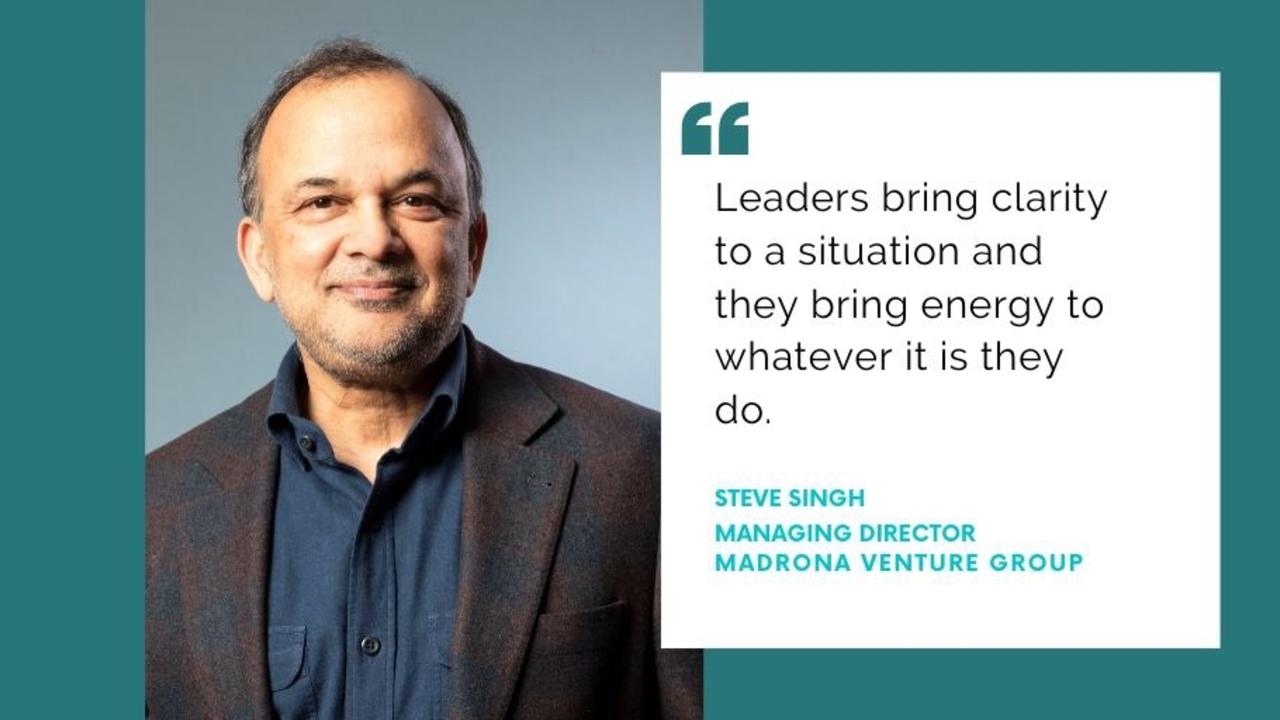
A quick scan of Steve Singh’s biography tells you all you really need to know about the Managing Director at Madrona Venture Group. It’s not his experience or expertise that jumps out. It’s this phrase: “the only legacy we leave behind is positively changing the trajectory of life for others.”
Here’s what else you need to know about Singh, he’s a driving force behind All In Seattle, a coalition of concerned Seattleites and community members who banded together to help neighbors through the COVID-19 crisis. The initiative ties into his personal belief around impacting the lives of others.
“No matter how amazing any one human being may be, we can only move the needle a little bit,” Singh told me during a recent conversation. “So, the legacy that we get behind is ensuring that everyone gets a chance to move the needle.”
As Singh says in the video below, “leaders can be anybody."
All In Seattle partners with charities who can offer immediate assistance with critical issues like food...
Sports Conversation Starters your Your Workweek + Convo with a WNBA GM

Were you one of the record-number of people who tuned into the virtual NFL Draft?
Were you also among the group of viewers who enjoyed seeing coaches, GMs, players and even NFL Commissioner Roger Goodell in their own homes?
It’s one of the biggest talking points following a draft that had more suspense around whether or not the technology would work (it did) than the top two quarterbacks in the draft class.
The NFL Draft provided sports-starved fans an outlet and insight they’d never seen. It’s a reminder that sports isn’t just about sports outcomes and work isn’t just about your work product.
Your house might not look like Arizona Cardinals head coach Kliff Kingsbury. Your dog might not get as much attention as Bill Belichick’s but that doesn’t mean co-workers and colleagues don’t want to connect with you on a personal level.
Pull back the curtain a little bit in your small talk. Be willing to chit chat before your calls this week. All it takes is a minute or two to provide addit...
Communicating With Remote Teams: Increase Audience Engagement

Audience participation requires prompting.
It's not enough to encourage your remote team to "weigh in with questions" or "let me know what you think." It sounds like you're encouraging engagement and interaction but you audience still doesn't have clear direction or guidelines.
- What should they be asking questions about?
- How long do they have to ask questions?
- What kind of thoughts would you like? Good ones? Bad ones?
Maintaining collaboration, teamwork and engagement are important aspects in leading a remote team, so don't leave it to chance. Be intentional about setting up scenarios that promote interaction and guarantee engagement.
Sports Conversation Starters your Your Workweek
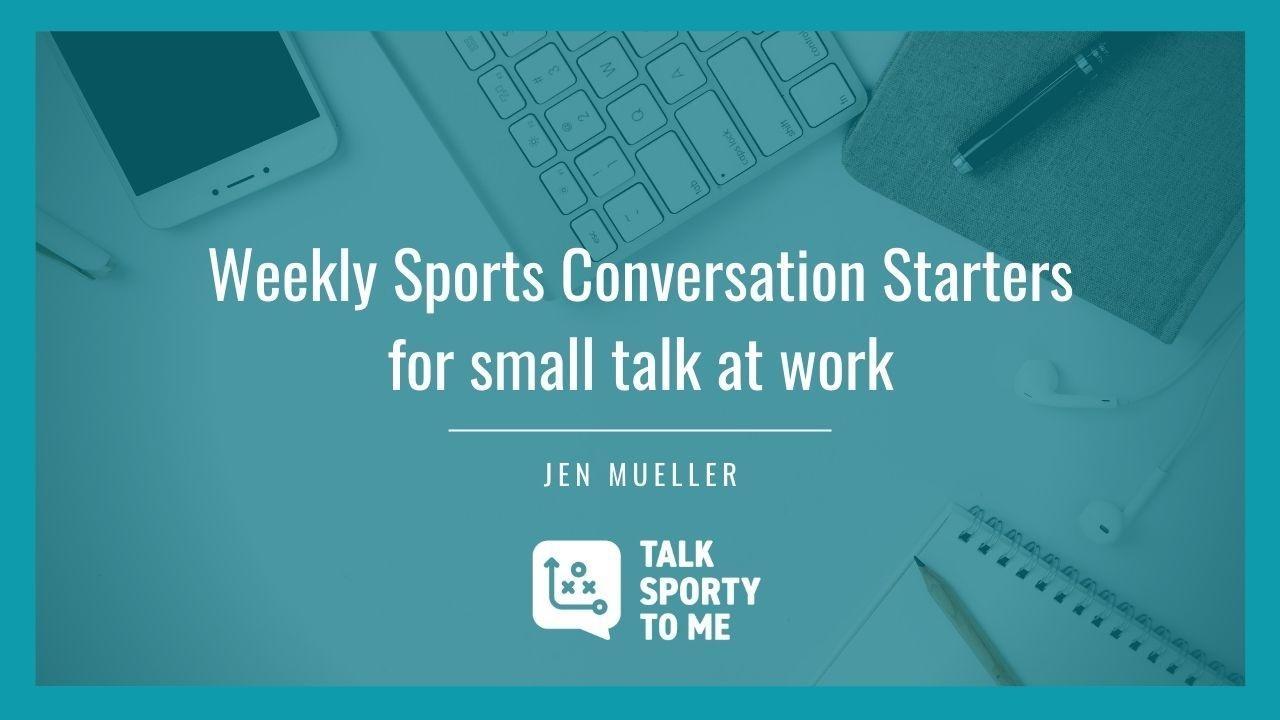
Small talk isn’t just about being polite or finding something to say before a meeting starts. It’s the beginning of conversation that could unlock creativity, new ideas or inspiration.
Those are all things that could be lacking while working from home. If you’re missing some of your mojo. If ideas aren’t coming to you as easily as they once did, try having a conversation with someone else. It doesn’t even need to be about work or the problem you’re trying to solve.
One comment can lead to a different thought and a way to unlock your mojo and creativity.
If you’re looking for small talk topics this week, try these sports headlines.

Communicating With Remote Teams: Master 3-Sentence Summaries

Better communication shouldn't be interpreted as longer emails or more meetings.
Be careful about extolling the values of "over-communication" with your remote team because longer emails and more meetings don't mean better communication.
You still need to communicate your message in a way the other person (or people on your team) hear and process the information. More often than not, it's shorter, bite-sized nuggets.
If you don't account for short attention spans and additional distractions that come with working from home, you're missing the mark with communication.
Here's a concept we frequently use during TV broadcasts - 3-sentence summaries. Take a look.
Sports Conversation Starters For Your Workweek
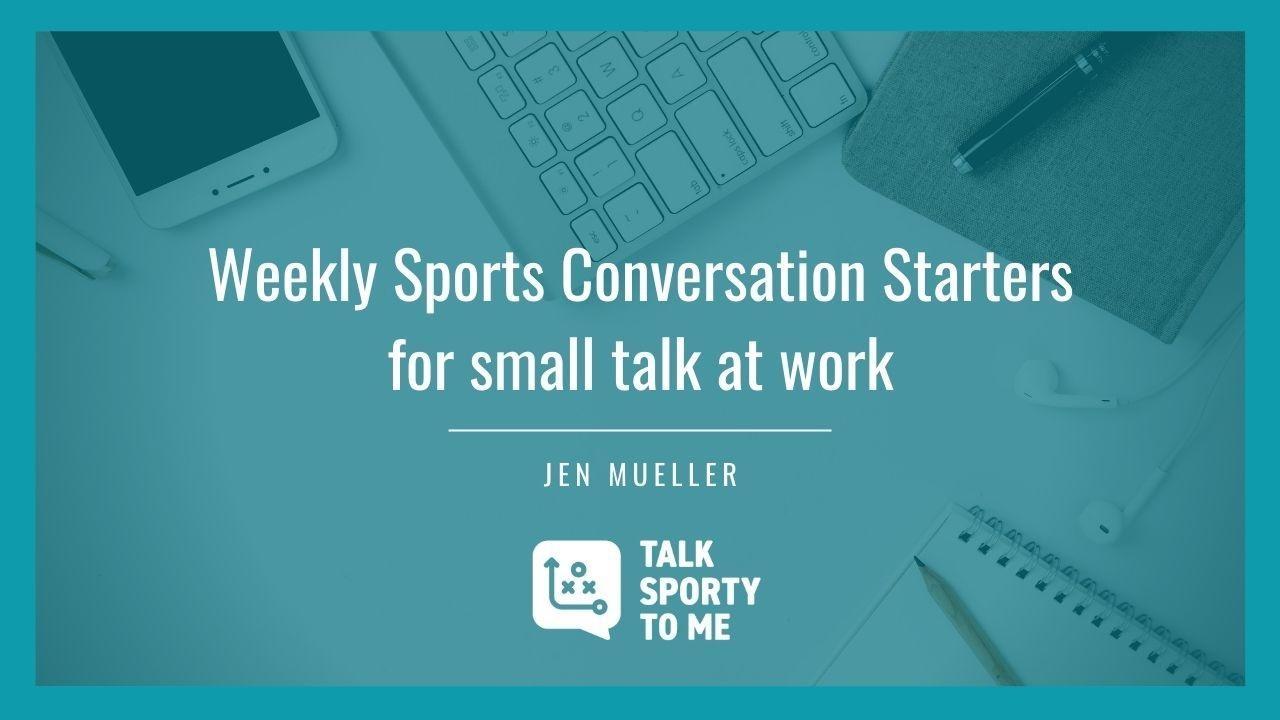
Functionality over cleverness today.
It’s important to stay in touch with people. You need things to talk about. There are only so many conversations about grocery store shortages, death rates, flattening the curve and social distancing we can take. (I know I’m at my limit!)
In the event that you are too, and even if you’re not, here are a few sports topics you can use in small talk on those video calls and virtual meetings this week.

Communicating With Remote Teams: Use E.T.A. for clarity in emails

Another WFH truth:
Your colleagues and team members have never been able to read your mind, but now they can't even read your facial expression, tone of voice, body language or get a read on your general demeanor.
That means they have no idea what to make of some of the emails you're sending.
Consider a note that says, "Call me when you get a chance." You know your motivation is to check in and see how your team member is coping with the work from home dynamic, but they don't know that unless you tell them. And until they know what the conversation is about, they're likely to jump to conclusions and stress out over the all the possible things you want to talk about because it's human nature to jump to the worst-case scenario.
Clarity is kindness, especially when sending emails in a work from home setting.
This is just one of the things to consider when communicating with remote teams. Download the the FREE e-book Communicating With Remote Teams for more tips. If you're inter...
Sports Conversation Starters For Your Workweek
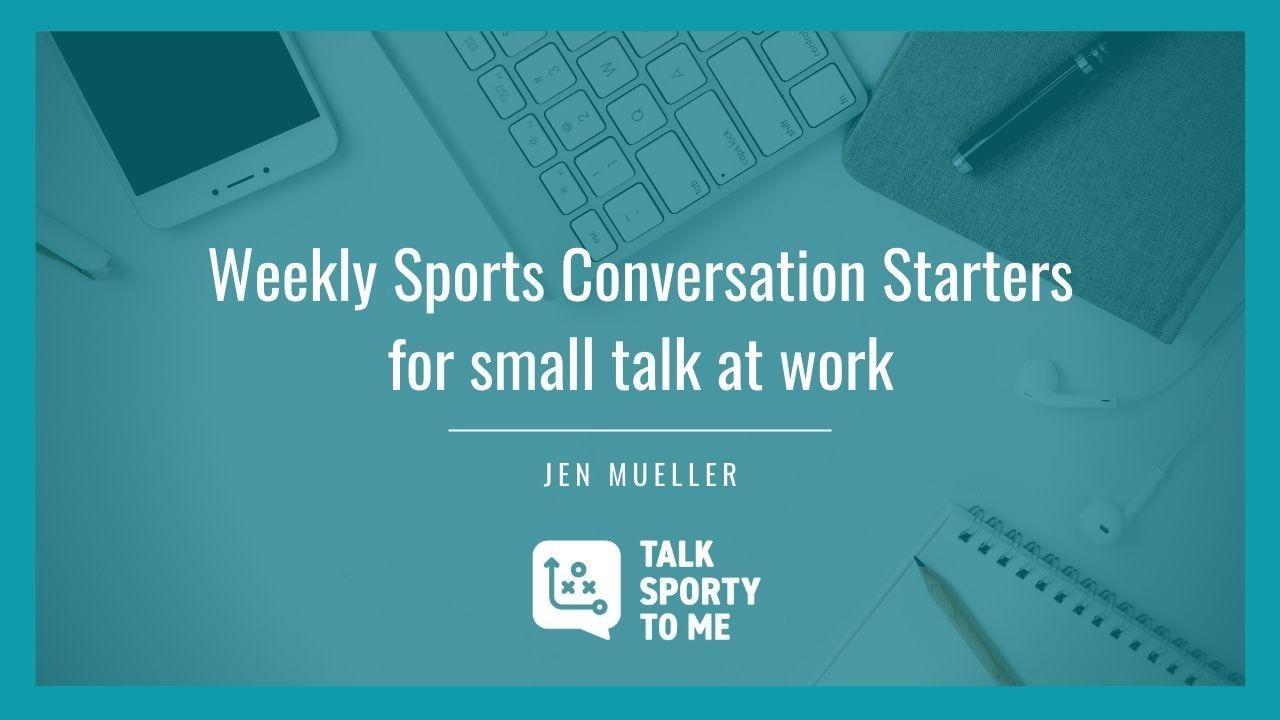
We’re going into week four of zero live sports on TV and my husband has decided the new go-to background TV programing is Food Network. Apparently me cooking every day is not entertaining enough. He has never once watched the food prep for his own dinner from start to finish. I digress.
We’re not the only ones changing our viewing habits. Everyone is looking for new things to watch and different things to talk about. Quite a few athletes and sports fans are entertaining themselves with virtual sports and still finding new sports headlines like these to talk about during the week.

Communicating With Remote Teams: Ask focused questions

"How are you?"
In "normal" times it's the appropriate thing to say when starting a conversation and part of the script we follow by default.
These days, that question is asked with sincerity and best intentions, but I'm willing to wager the answers fall short of expectations.
If you really want people to open up, share their story and reveal personal details you have to ask a more focused question.
"How are you?" is the equivalent of me, a sports broadcaster, striking up a conversation with a player by saying, "Tell me about the game." I fully expect the athlete to look at me, shrug and then say, "What part of the game do you want me to tell you about? The beginning, the middle, the end, the role I played, the effort of my teammates, the adjustments we made because of the opponent?"
(If he or she doesn't do that, they're being far too polite, because that is a terribly unprepared way for a reporter to start a conversation with an athlete.)


